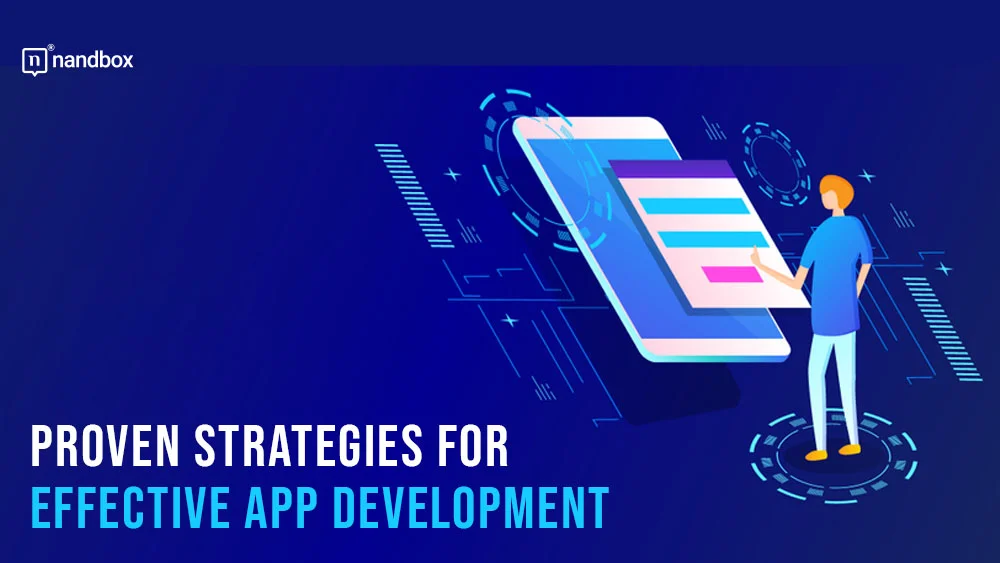When it comes to developing a successful app, it’s crucial to have a well-defined strategy in place. The app market is highly competitive, and standing out from the crowd requires careful planning and execution.
From social networking to eCommerce, from productivity tools to entertainment, there seems to be an app for almost everything. However, not all apps are created equal. Some effortlessly capture our attention and loyalty, while others get lost in the vast sea of applications.
In this article, we will show you some of the proven strategies for effective app development. Using them can help you create an app that not only meets user expectations but also captivates and engages your target audience.
So, let’s dive in!
What is App Development?
It refers to the process of creating and designing software applications for various devices such as mobile, laptops, tabs, etc. It consists of stages like coding, designing, testing, and deployment. The main purpose of an app is to deliver a functional and user-friendly application that meets the needs of the target audience.
Proven Strategies to Develop an Effective App
Let’s now explore the techniques that can help you design a fully operational mobile app without a hitch.
1. Understand Your Target Audience
To build an app that resonates with your users, it’s essential to understand their needs, preferences, and pain points.
Perform thorough market research to identify your target audience’s demographics, behavior patterns, and expectations from similar apps.
Utilize surveys, focus groups, and analytics to gather valuable insights. This information will guide you in designing a user-centric app that addresses their specific requirements.
2. Set Clear Goals and Objectives
Define your app’s goals and objectives early in the development process. Are you aiming for a high number of downloads, increased user engagement, or generating revenue through in-app purchases?
Setting clear goals will help you make informed decisions throughout the development journey and keep your team focused on achieving measurable success.
3. Develop a User-Centric Design
Indeed, a well-designed app is intuitive, visually appealing, and provides a seamless user experience. Put yourself in your users’ shoes and create a design that is easy to navigate, visually consistent, and aligned with your brand.
Consider incorporating user feedback during the design phase to ensure the interface is user-friendly and engaging. However, partnering with it staffing company can provide you with a pool of experienced professionals who can assist in gathering and analyzing user feedback. Their expertise can contribute to creating an app that truly meets the needs and desires of your target audience.
4. Focus on Performance and Speed
Users have high expectations when it comes to app performance. Slow loading times and frequent crashes can be major turn-offs.
Optimize your app’s performance by minimizing loading times, optimizing code, and conducting rigorous testing across different devices and operating systems.
A fast and reliable app will enhance user satisfaction and increase the chances of positive reviews and recommendations.
5. Implement Robust Security Measures
Data breaches and privacy concerns can severely impact user trust and tarnish your app’s reputation.
Prioritize security during app development by implementing encryption protocols, secure authentication mechanisms, and data protection practices.
Regularly update your app with security patches and stay vigilant against emerging threats.
Wrap Up
So, what sets apart the successful apps from the rest? The answer lies in effective app development strategies. Building a remarkable app that resonates with users and stands out in a competitive market requires careful planning, innovative thinking, and a deep understanding of user needs.






